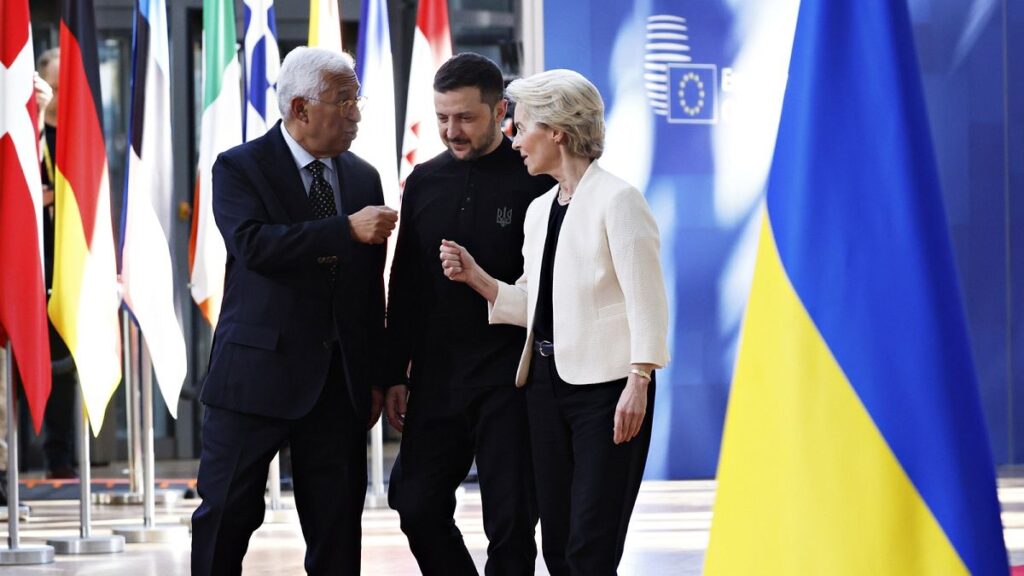The European Union is mulling new plans to tweak the rules of enlargement in a fresh attempt to bypass Hungary’s persistent veto on Ukraine’s membership bid.
As of today, each stage of the accession process is subject to unanimity, and any member state can hit the brakes with a veto at any given moment.
For more than a year, Hungary has prevented Ukraine from opening the first cluster of the negotiations, known as fundamentals, which covers key topics such as democracy, human rights, security, the judicial system and public procurement.
Budapest has invoked various reasons to justify its veto, including the continuation of Russia’s war, concerns about energy security and agriculture and the situation of the Hungarian minority inside Ukraine. Earlier this year, Prime Minister Viktor Orbán launched a national consultation among his citizens on the issue.
Since then, Orbán has used the results to claim a “strong mandate” for his veto.
But in Brussels, exasperation rises by the week.
European Council President António Costa is testing the waters to amend the negotiating framework with Ukraine and allow the opening of clusters to be decided by a qualified majority, a senior EU official familiar with his thinking explained on Monday.
This means that, in practice, the Hungarian veto would no longer be enough to paralyse progress. The closing of the clusters would remain under unanimity rules.
Costa decided to make the pitch after a weeks-long tour of all member states, during which he met with Orbán.
If there is enough political traction, the proposal might be put on the table as soon as Wednesday during an informal meeting of EU leaders in Copenhagen.
“If he (Costa) saw there was no chance of this going through, he would not put this forward,” the senior official explained. “For the moment, given the contacts he has had, he doesn’t have the impression that it’s completely impossible.”
Costa’s plan would have not one but two beneficiaries: it would enable both Ukraine and Moldova, whose bids have been informally coupled, to move forward.
For Kyiv, it would represent a hard-fought diplomatic victory amid ongoing consultations for security guarantees. For Chișinău, it would fortify its European path after the recent parliamentary elections that saw rampant attempts from Moscow to influence voters.
Nevertheless, one key obstacle stands in the way: amending the negotiating framework with Ukraine would require unanimous consent.
“It’s not yet clear that this (idea) will have the unanimous support and these contacts will continue,” the senior official said, admitting the matter was “difficult”.
“One thing is certain: no leader to this day replied in a total negative way to this idea.”
The European Commission, which oversees the progress of each candidate to join the bloc, said the possibility of switching to qualified majority for the opening of clusters could be “explored”, but fell short of endorsing Costa’s plan.
“When a country is held back for no objective reasons despite meeting the criteria, the credibility of the entire enlargement process is at risk,” a Commission spokesperson said on Monday when asked about the possible change.
“Our position is that we should open cluster one for Ukraine and Moldova. They have done their work, they have met their criteria.”
The deadlock created by the Hungarian veto has fuelled speculation of a possible decoupling of Ukraine and Moldova’s bids. But earlier this month, a meeting of European Affairs ministers showed little appetite for the break-up, fearing that doing so would amount to an effective surrender to Hungary’s filibustering.
Read the full article here

